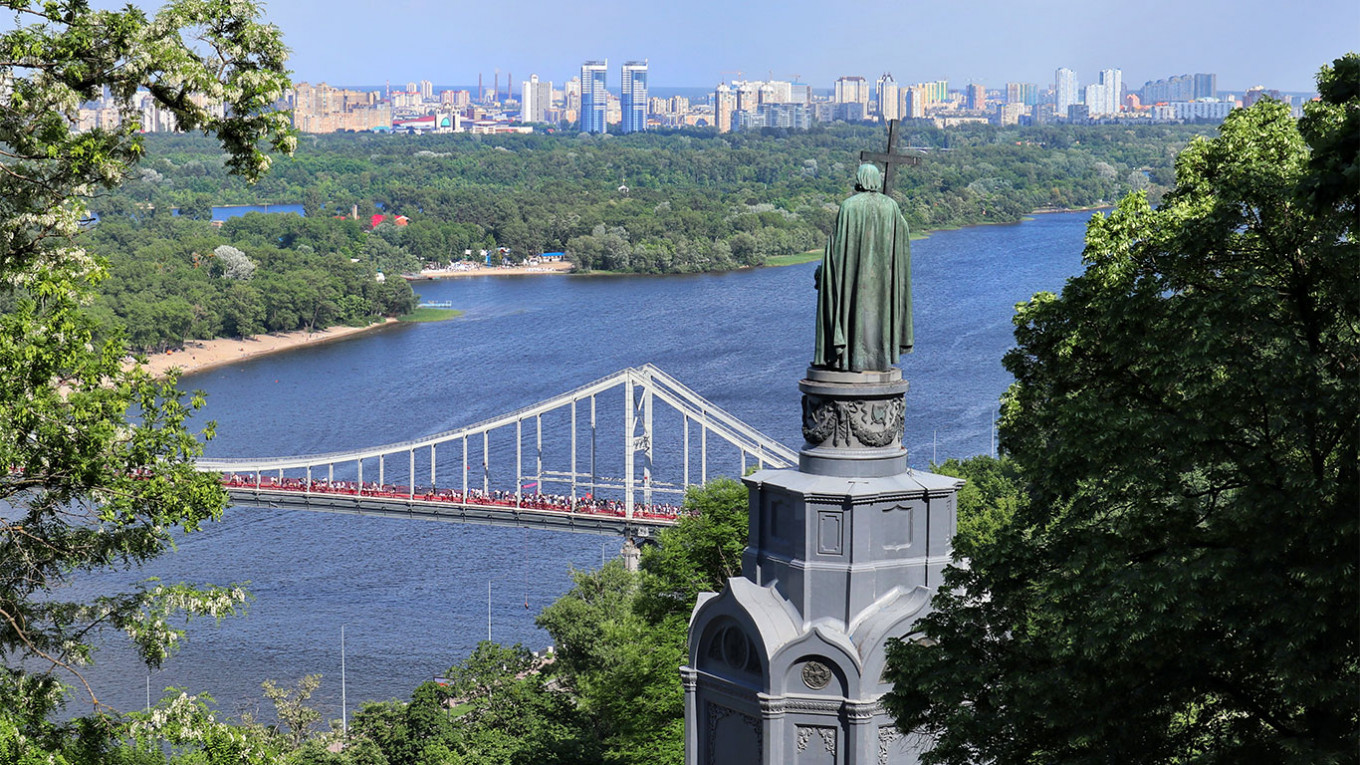In Vladimir Putin’s 2021 essay about Ukraine, he wrote that Russians, Ukrainians and Belarussians are all descendants of Ancient Rus and shared “the same historical and spiritual space.” Kyiv was “the mother of all Russian cities,” he quoted, and stated that “both the nobility and the common people perceived Rus as a common territory.” He presented history as a more or less straight line from the Russian-founded Kyivan Rus through the city of Vladimir to Moscow and its imperial glory.
But history is messy. Russia’s founders probably weren’t Slavs, the church’s authority was split, and that picturesque tourist region we now call the Golden Ring was a mass of confused loyalties.
The Golden Ring is a collection of ancient cities a few hundred kilometers northeast of Moscow. It includes Suzdal, Vladimir, Sergeyev Posad, Veliky Rostov, Yaroslavl, Pereslavl Zalessky, Ivanovo and Kostroma. Today they are provincial towns with modest and decreasing populations, but the Golden Ring was once a spiritual, cultural and economic center of Ancient Rus.
Paradoxically, the Golden Ring was a Soviet invention. It was first drawn up as a motoring route in the 1960s by journalists working for Sovetskaya Kultura magazine. Yuri Bychkov, when asked for a title, got inspiration from the Kremlin’s Ivan the Great Bell tower on a rainy Moscow day (byli budto zolotym maslom vymazany — “as if they were smeared with golden butter”). Its conception as a tourist route came shortly thereafter as part of the Soviet state’s initiative to expand tourism and in response to calls for preserving historic buildings.
Today many assumptions about Russia and it’s view of Ukraine can be traced to the heyday of the Golden Ring.
Before those cities appeared, Kyivan Rus was made up of multiple Slavic tribes that regularly fought one another but spoke and shared similar languages and cultures. Legend has it they sought a ruler who would “lead over” them and “restore order.” Around 862, they got Rurik, a Varangian.
Many prominent Russian historians and leaders insist that Russia was of purely Slav origins. But one text from 1520, “The Tales of Prince Vladimir,” claimed that Rurik had a connection to the Roman Emperor Augustus. In “The Primary Chronicle” the Varangians seem to be Norseman.
We know that Rurik’s arrival was part of a southward and eastward drift of Scandinavians. They were sometimes traders but often invaders — in fact, the Slavs called the Varangians “conquerors of the Rus.” Rurik arrived in Novgorod as two other Scandinavian settlers seized Kyiv. Rostov’s first people were a Finnic tribe, and others probably occupied the Golden Ring region.
In Kyiv, Grand Prince Sviatoslav was a descendent of Rurik from Novgorod. Ruling Kyivan Rus was difficult, and the eastern Slavs needed something other than a leader to unite them. And so Sviatoslav’s son Vladimir (Volodymyr) the Great brought Byzantine Christianity to Kyivan Rus – or he at least made it the official religion. Byzantine Christianity had been spreading in Rus for a while, and adopting it was mostly pragmatic.
Vladimir’s grandson, Yaroslav the Wise, was sent to rule Rostov and its surrounding regions. This area, which would become the Golden Ring, grew very gradually. It had abundant natural resources, surrounded by rivers, forests, and more importantly, it was located far from invaders. Political power in Vladimir also rested firmly with the monarchy.
But Kyiv remained the center of Russian Orthodoxy until the 15th century. Unfortunately, the city sat in the crosshairs of multiple civilisations. It was sacked many times and plagued by succession problems. As it grew weaker, the principality of Vladimir-Suzdal was attracting migrants seeking wealth and refuge from steppe raiders. When Vladimir Monomakh lost a battle in Kyiv to a new nomad threat – the Polovtsians – Vladimir-Suzdal had the largest army in Europe.
In the city of Vladimir, Prince Andrei Bogolyubsky had remained separate from southern politics. But in 1169 he sent an army to Kyiv and successfully captured and sacked the city.
Bogolyubsky didn’t stay in Kyiv to rule. Instead, his brother Gleb was put on the Kyivan throne, and he returned to the fast-developing town of Vladimir and his palace at Bogolyubovo. But Bogolyubsky symbolically kept Kyiv in his official title despite ruling from Vladimir. So too did the church Metropolitans who left Kyiv for Vladimir in 1299.
Ever since secular power moved to Vladimir, Russia’s political imagination has fixated on the notion of a powerful autocrat and its historical narrative defined by miraculous transformations that turn even the most humiliating defeats into triumphs. Therefore, Vladimir (later sacked and destroyed by the Mongols) and Bogolyubsky (assassinated for his autocratic tendencies) are dubbed things that define Russia. Stability was created through the strong state, a powerful figurehead and formidable army.
But while Russia’s empire was being consolidated in the north, Ukraine’s path was shaped by the Cossack military democracy (Zaparozhkaya Sich) which spread through Russia, Turkey and Poland for centuries. The spirit of the Sich may have even been present in Leonid Kravchuk, Soviet Ukraine’s last leader who took it to independence.
So had Moscow been Kyiv’s spiritual and political successor, democracy — not autocracy — might have flourished in Russia.
A Message from The Moscow Times:
Dear readers,
We are facing unprecedented challenges. Russia's Prosecutor General's Office has designated The Moscow Times as an "undesirable" organization, criminalizing our work and putting our staff at risk of prosecution. This follows our earlier unjust labeling as a "foreign agent."
These actions are direct attempts to silence independent journalism in Russia. The authorities claim our work "discredits the decisions of the Russian leadership." We see things differently: we strive to provide accurate, unbiased reporting on Russia.
We, the journalists of The Moscow Times, refuse to be silenced. But to continue our work, we need your help.
Your support, no matter how small, makes a world of difference. If you can, please support us monthly starting from just $2. It's quick to set up, and every contribution makes a significant impact.
By supporting The Moscow Times, you're defending open, independent journalism in the face of repression. Thank you for standing with us.
Remind me later.








